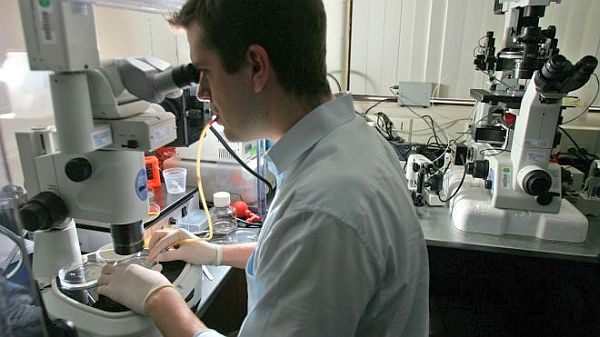Mexico City - A non-invasive technique for the early detection of skin cancer has been developed by students at the Escom school of computing at the National Polytechnic Institute of Mexico, the institution said in a statement.
The students created "a computing system that analyzes and processes photos taken through a dermatoscope, which permits the disease to be identified in its early stages," the note said.
Basal cell carcinoma, or BCC, is a skin cancer that generally appears in the form of reddish stains on the face and scalp, grows slowly, seldom metastasizes but has a local destructive capability that can cause extensive damage to tissue, cartilage, and occasionally, bones.
Students Francisco Araujo, Juan Antonio Gonzalez and Cristian Olvera used pattern-recognition algorithms with which their prototype successfully "identifies the most common properties of BCC in order to select only those images that show traces of the disease."
After pre-processing the image, elements remain that are irrelevant to the characteristics looked for, so they used techniques for analyzing objects in the images along with reduction algorithms to get an effective segmentation.
With this step, the researchers managed to eliminate all elements that presented no relation whatever to BCC; in that way, they isolated the basal cells for analysis.
"The technique will serve as a reference for doctors since it will show whether the photo has captured basal cells with the possible presence of cancer," the note said.
It will also permit the specialist "to have an effective, trustworthy pre-diagnosis that will avoid performing unnecessary biopsies on patients whose images are not related to BCC and that generally require deep cuts between 4 and 5 millimeters."
The project was directed by Escom professor Benjamin Luna with the counsel of Rolando Flores, researcher at the Center of Computer Innovation and Development.
Source: EFE


